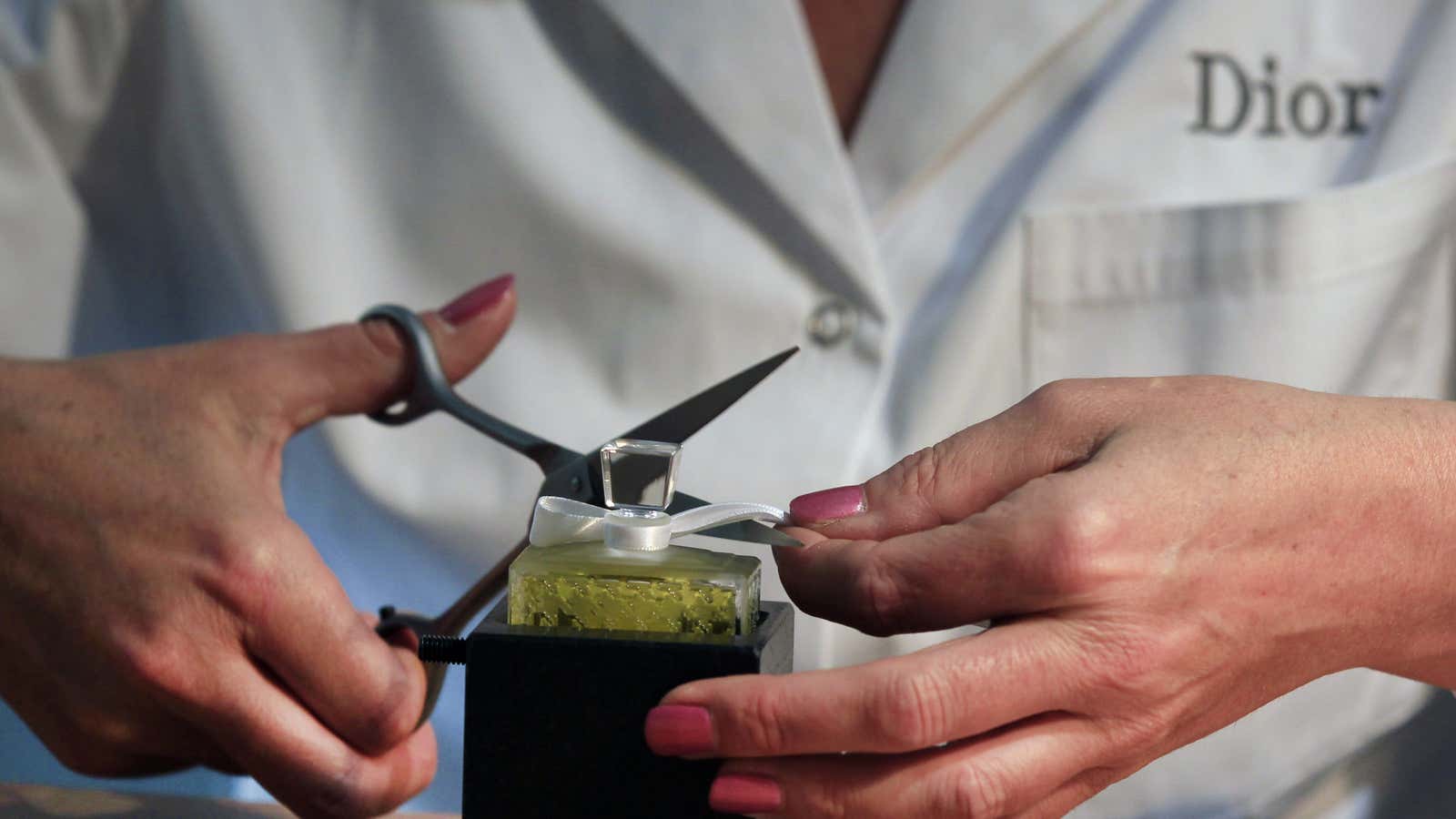To show they’re not just concerned with profits but also good public citizens, companies not normally in the business of producing medical supplies are joining the effort to battle the spread of the new coronavirus.
Beginning today, factories in France that normally produce perfumes and cosmetics for Christian Dior, Guerlain, and Parfums Givenchy will shift to making hand sanitizing gel to be distributed free to French hospitals. A spokesperson for the Paris hospital system told The Guardian that sanitizer hadn’t yet run out but supply was “strained.” LVMH, the French luxury giant that owns those brands, announced the plan on March 15 and intends to produce as much as 12 metric tons (about 26,500 pounds) of hand sanitizer at its three French facilities as soon as this week, according to The Guardian.
In the UK, British prime minister Boris Johnson today asked manufacturers including Rolls Royce, Ford, and Honda to make medical equipment such as ventilators. Rolls Royce, which builds jet engines for clients such as Boeing and Airbus (Rolls-Royce Motor Cars is owned separately by BMW) said via a spokesperson that the UK government is exploring ways business can assist with the Covid-19 outbreak. “As they shape their plans, we are keen to do whatever we can to help the Government and the country at this time and will look to provide any practical help we can,” the spokesperson said in an emailed statement.
The efforts show how the coronavirus crisis is escalating in the UK and countries around Europe. In China, where the outbreak originated, a number of companies switched to producing medical items alongside their normal goods in February. For example, Foxconn, which assembles Apple’s iPhones, as well as automakers Shanghai General Motors Wuling and BYD began cranking out facemasks. In Japan, meanwhile, electronics company Sharp had to start making masks at one of its facilities for producing televisions at the beginning of March.
While companies often contribute when disasters occur in their cities or countries, it’s typically money they offer. Companies such as Facebook, Apple, and H&M, have contributed donations of various sorts to aiding with the coronavirus crisis.
It’s less common for companies to change the products they make in order to help a national effort. As fashion journalist Jasmin Malik Chua pointed out on Twitter, those sorts of efforts typically occur during wartime, as when makers of lingerie or silk shifted to producing camouflage netting and parachutes in World War II. The projects reflect the extraordinary size of the coronavirus’s impact.
